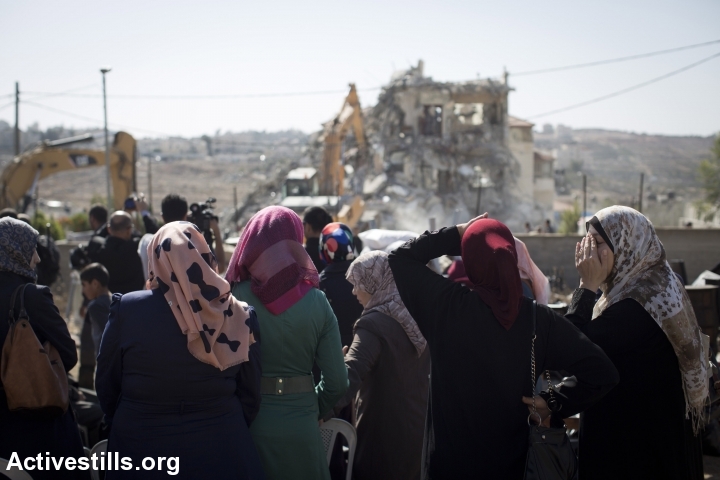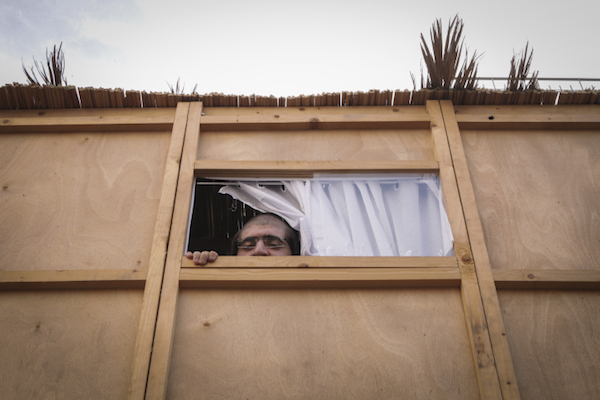Around the world, dozens of communities are organizing activities to draw the connection between Sukkot — a holiday in which Jews commemorate the physical insecurities experienced by their ancestors — and the need to protect Palestinian villages in danger of destruction by Israel.
By Micah Friedman

Israeli demolitions have left 256 Palestinians homeless in the West Bank this year. Two hundred and fifty-six souls were driven from the safety of their homes, forced into internal exile. Since 2006, 5,849 Palestinians living in Area C, under full Israeli military control, have lost their homes due to demolitions.
Now, Israeli Defense Minister Avigdor Liberman has openly declared his intent to wipe out the West Bank villages of Khan al-Ahmar and Susya by mid-2018. Inside the Green Line, the Israeli government is trying to evict the residents of the Bedouin village of Umm al-Hiran, in order to build the Jewish town of Hiran on its remains.
Over the past week, Jews worldwide have been celebrating the holiday of Sukkot, which calls upon Jews to recognize the fragility of our lives. We commemorate the physical insecurities experienced by our ancestors as they left Egypt for the Promised Land by spending one week dwelling in the sukkah, an impermanent structure incapable of protecting us from rain.
In fact, as Orly Noy wrote in these pages, these sukkahs are “not so different from the dilapidated shacks that house the residents of Khan al-Ahmar, from which the state is trying to expel them.” Yet unlike Israeli Jews, who leave the sukkah for the safety of their home at the end of the week, Palestinians in the West Bank and East Jerusalem, as well as Bedouins in the Negev, are routinely denied the right to build even a simple structure as flimsy as a sukkah.

Around the world, dozens of communities are organizing activities to draw the connection between Sukkot and the need to protect Palestinian villages in danger of destruction. Here in Israel, Torat Tzedek—Torah of Justice, a new human rights NGO led by Rabbi Arik Ascherman, is organizing a pair of gatherings to learn about home demolitions and demand that Israeli authorities cancel all impending demolition orders.
On Tuesday, we will gather in Jerusalem in a sukkah built by “Achvat Amim” for an evening of learning about Israeli home demolitions. The following day, Torat Tzedek and other Israeli organizations will lead a public teach-in and demonstration in front of the Israeli Defense Ministry in Tel Aviv, demanding that the government cancel its plans to demolish Khan Al-Ahmar and Susya. It is particularly symbolic that these actions take place on the final day of Sukkot, also known as Hoshana Raba. Hoshana Raba is seen as “Yom Kippur Katan” — a minor day of atonement —another opportunity to change our ways, and thus change our own fate and the fate of others. What better time to demand that Liberman stop playing God and cancel the demolition of Susya and Khan Al-Ahmar?
These actions are but small deeds. If we seek to build a just society in Israel-Palestine by ending continued dispossession and demolitions at the hands of the Jewish state, Jews around the world will have to turn their attention to the Palestinians forced to spend their lives in constant uncertainty of when a bulldozer might destroy their home — all in the name of Jewish survival.
Micah Friedman is living in Jerusalem with Achvat Amim and volunteering with Torat Tzedek a Torah of Justice as a seeker, student, and activist who recently graduated from Florida State University.

